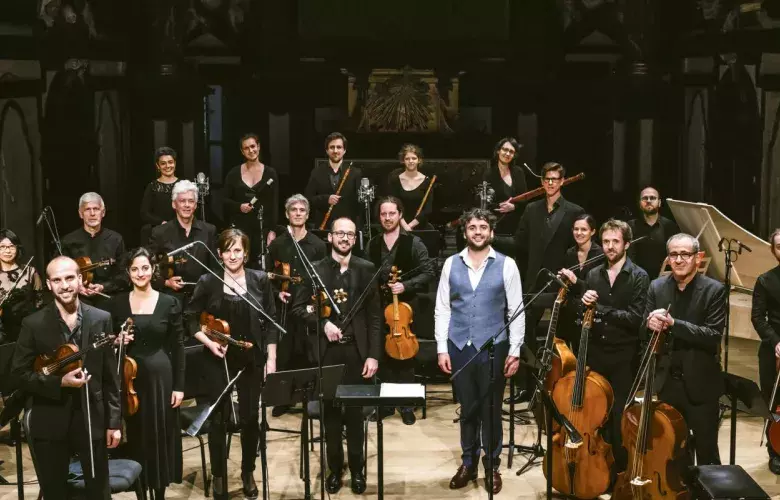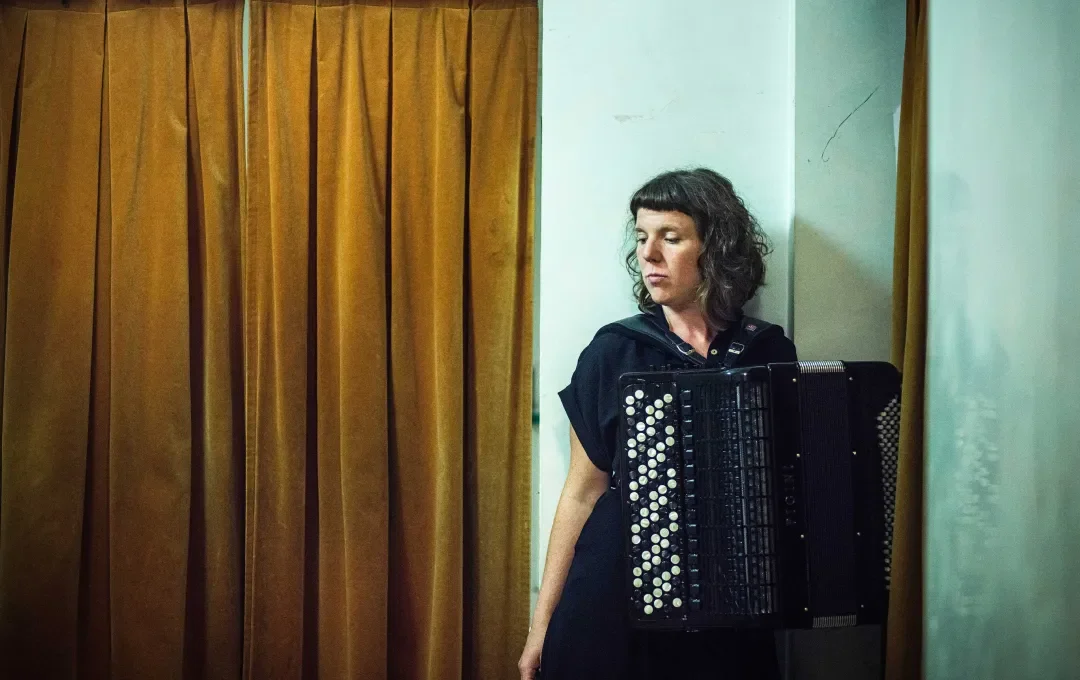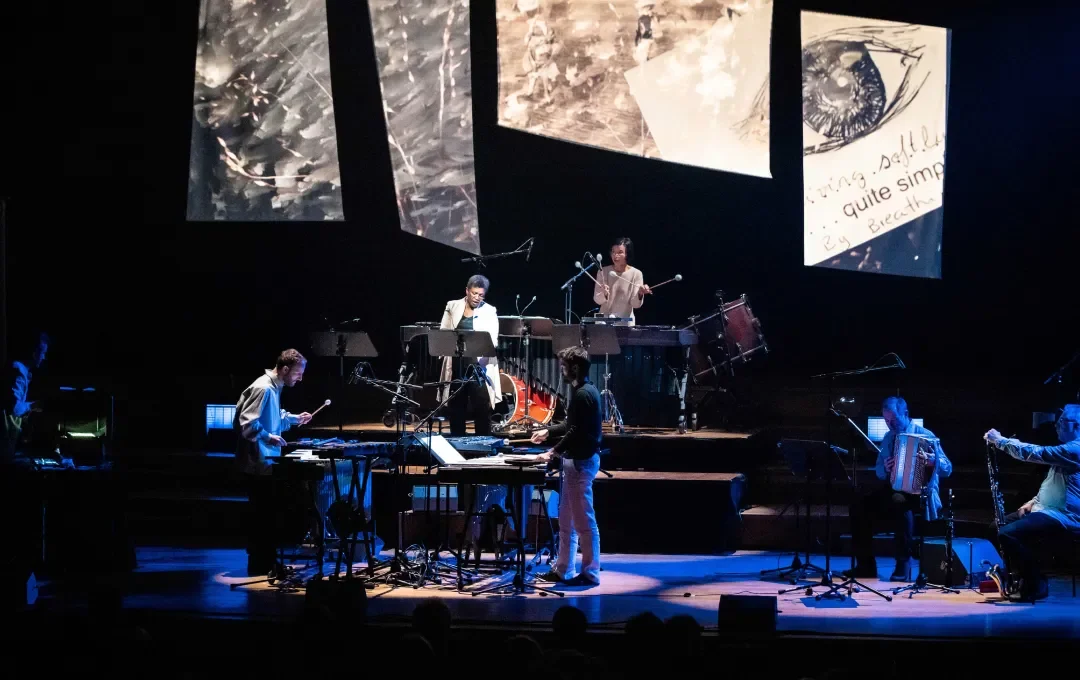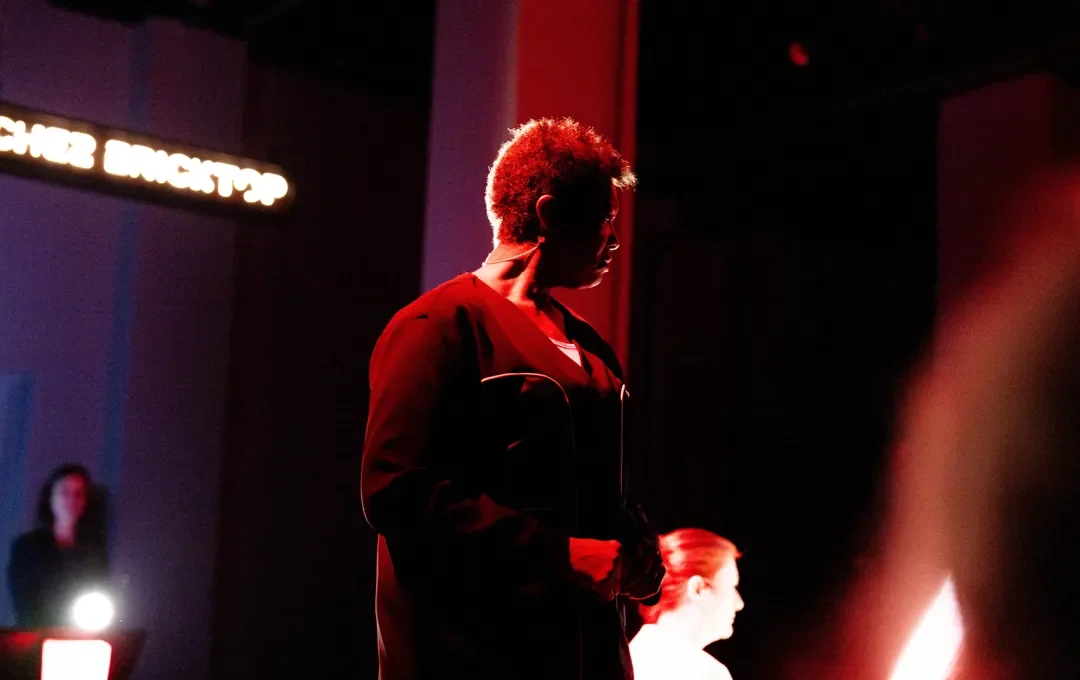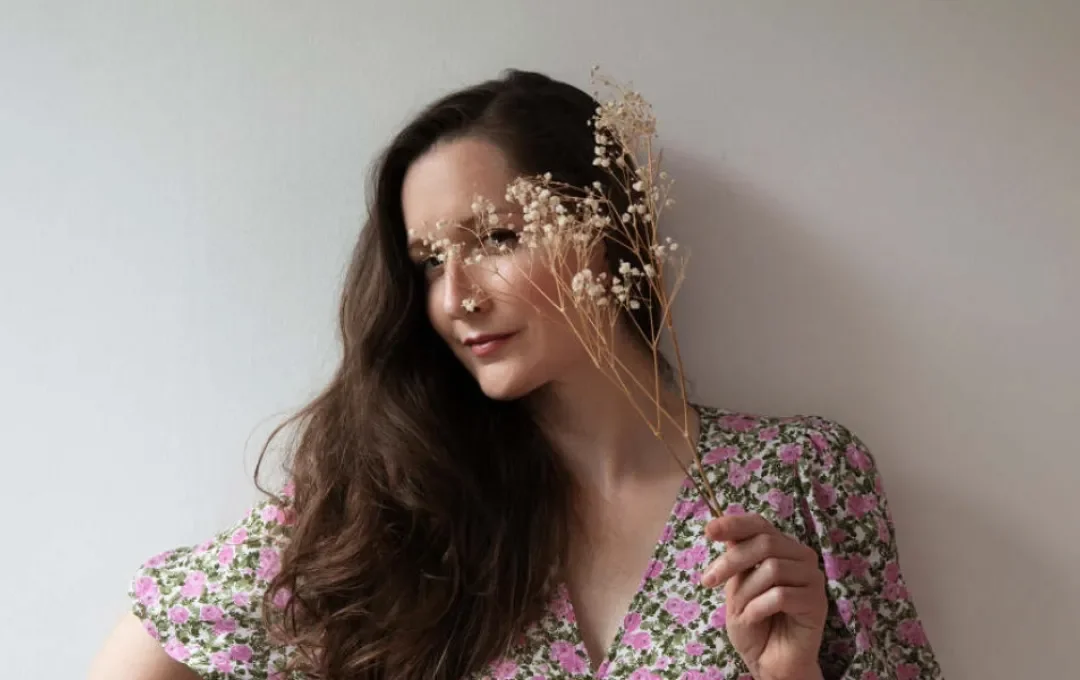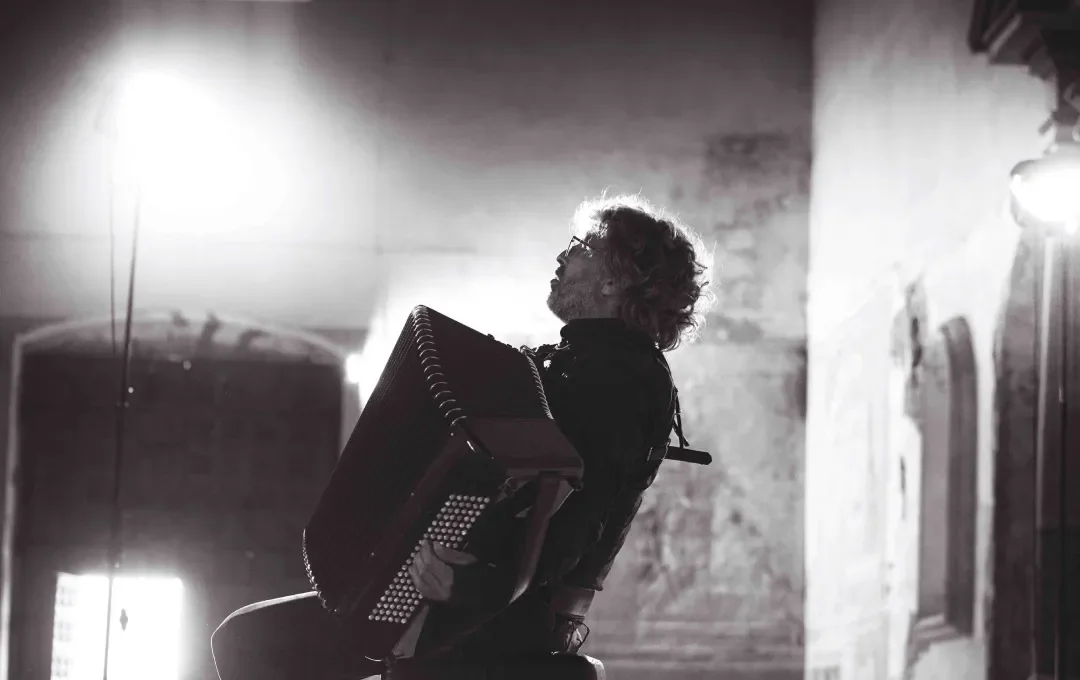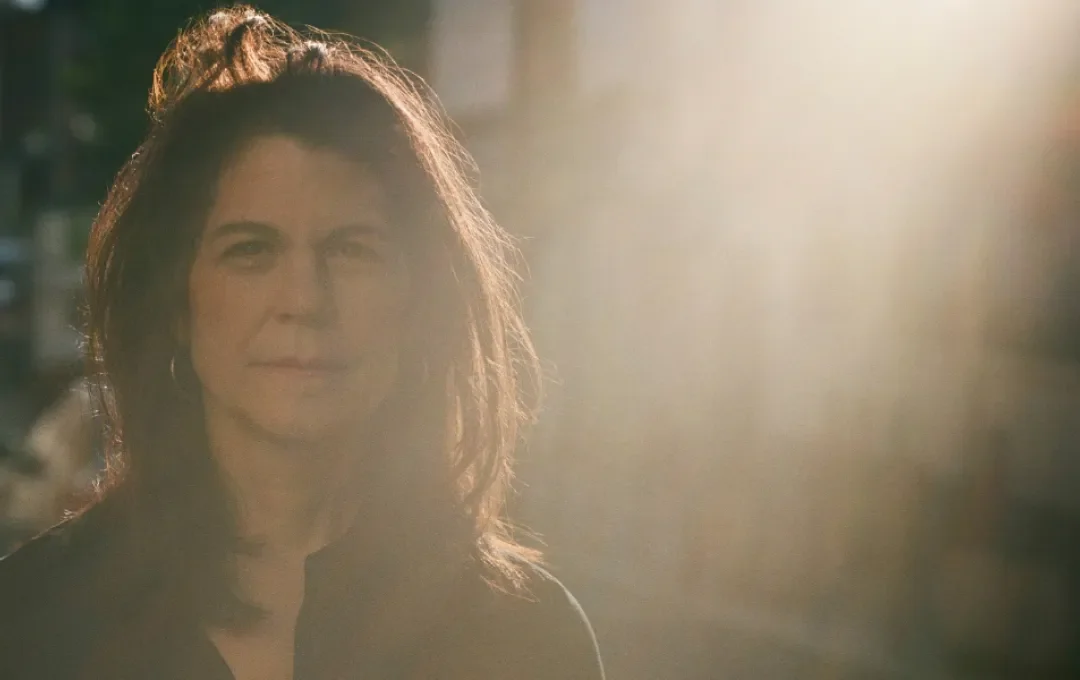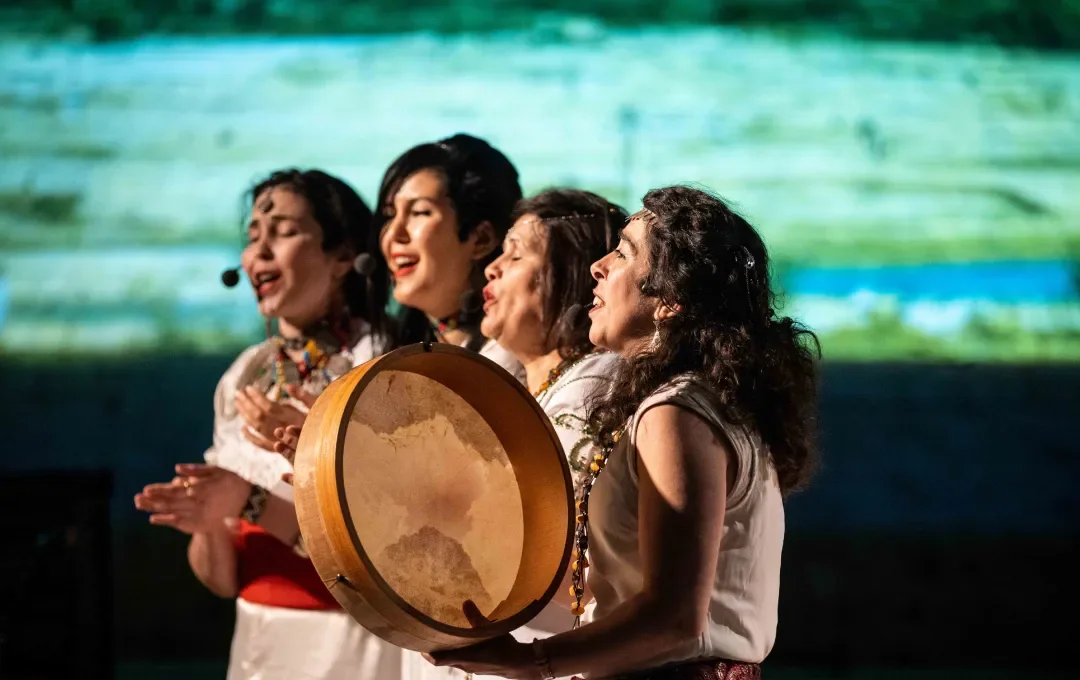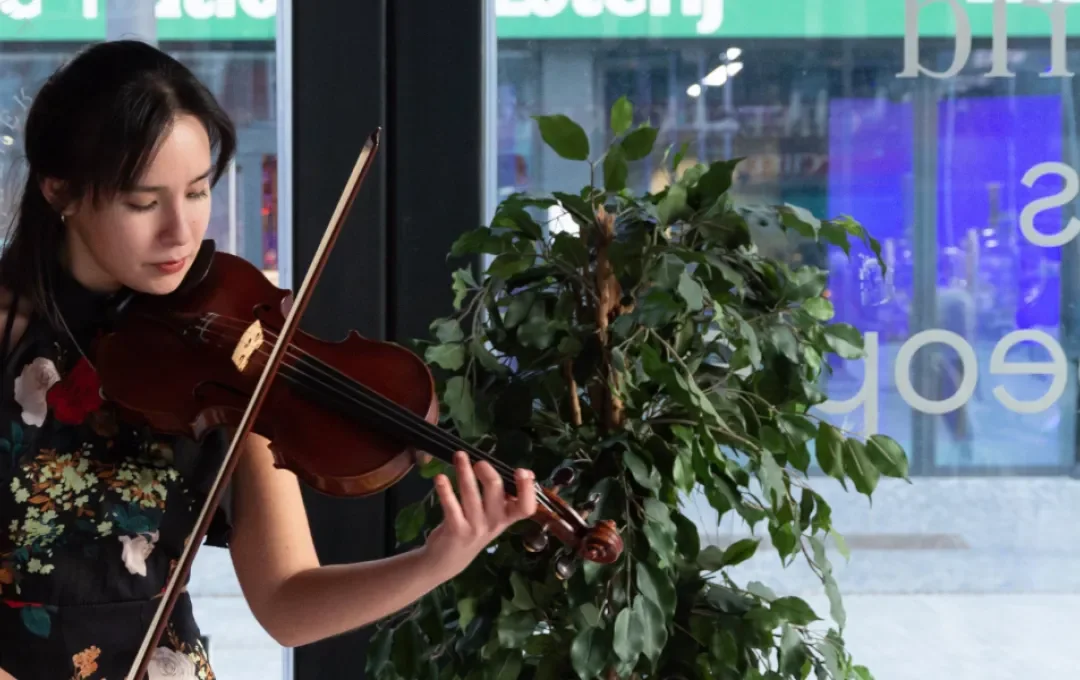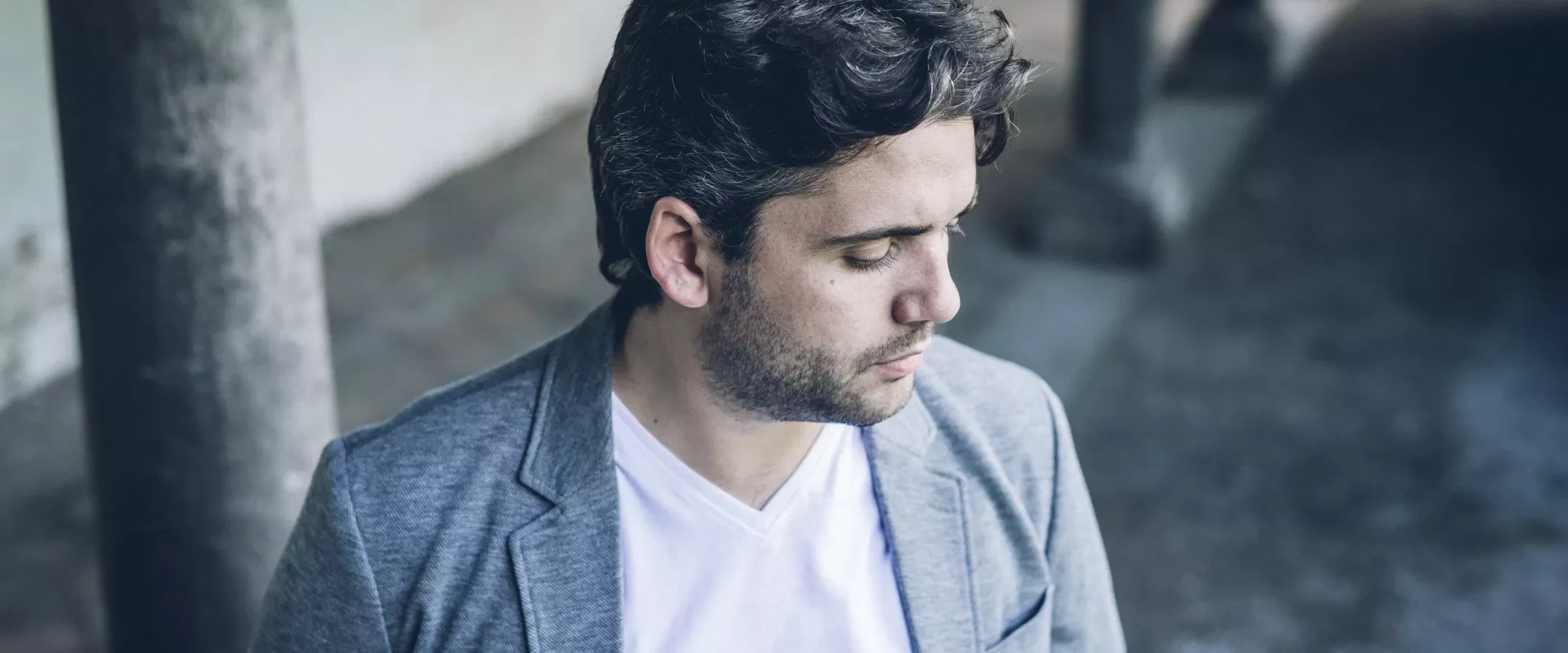
since the beginning of time
For the first time Klarafestival welcomes a festival artist, and this year it is the Belgian tenor Reinoud Van Mechelen.
Anybody who knows you also knows that, as an artist, you are always searching for ways to engage with society. Do you believe classical music is in a position to make a contribution to society?
You only have to watch television to know that today classical music is way down the list of priorities. How often is a musician invited to discuss classical music on the news? We are much more likely to hear yet another economist, scientist or politician. Classical music is no longer interesting; it is no longer an essential part of our society. But it can be. Classical music can do a lot of good.
How? How can you make classical music relevant to society again?
By exposing children to a requiem written 300 years ago, and then watching and asking them what they feel, by confronting people unexpectedly with classical music and convincing them in this way that they should make some room for it in their lives. As artists we sometimes have to really get stuck in when it comes to showing that what we are doing serves a purpose. A musical experience does not bring an immediate and measurable result but it can be so beneficial to our inner self.
And how can an organisation such as Klarafestival facilitate this?
Klarafestival reaches a lot of people through the radio and is rooted in the centre of the country. As festival artist, I would like to organise a popup concert at Brussels Central Station, with a 20-minute long performance of the Te Deum by Marc-Antoine Charpentier and surprise everyone who happens to be passing. I want to be the megaphone in the street shouting "Come and see this!" I also believe we should organise open rehearsals for children. I truly believe that the relevance of classical music begins with education. The role and importance of music in education has nothing to do with how well a six-year-old can play the recorder. It is about building a frame of reference that is not at all separate from other genres such as pop music. The chords on which pop songs are based would be unthinkable without the rich musical traditions of bygone centuries. Music is also about being together, about bringing people together, hence the theme of this year's Klarafestival. What is the expression? Stick together?
The theme for Klarafestival 2022 is indeed ‘Let’s stick together’, to celebrate that we can again come together in person after all this time. Is that theme also present in the concerts you will give?
Marc-Antoine Charpentier's Te Deum, the prelude of which is familiar to everyone as the opening tune for the Eurovision Song Contest, is about being together. In this respect the pandemic has really brought the reality home to us: music is something we want to experience live. Music can bring people together. The concert featuring Charpentier's Te Deum and Campra’s Requiem is illustrative of this idea of coming together: It is a cooperative effort between a nocte temporis, the Choeur de Chambre de Namur and Klarafestival.
Where did this need to form your own ensemble in a nocte temporis come from?
Taking on the musical organisation had always been something of a crazy dream of mine. When I met Anna Besson, we recorded the CD Erbarme dich together, with arias for flute and tenor by Johann Sebastian Bach. That inspired me to launch more of my own projects. With your own ensemble, you take control and you can realise the projects that you believe in, with the help of the right people. For me it is a great and perhaps necessary change from major projects - which also give me great pleasure - in which I am more of a cog in a larger whole. Also, with a nocte temporis I wanted to breathe new life into French baroque music in Flanders. We may not like to admit it, but historically Belgium has a great affinity with the French repertoire. It is the French music that used to be played here, but today this music is no longer as well known. My interest in French music naturally stems partly from the fact that after training in Belgium I specialised in French baroque music at the Académie d’Ambronay and at Les Arts Florissants.
What exactly does a nocte temporis mean?
One of my wife Anna's favourite books is La nuit des temps by René Barjavel, a title derived from the expression ‘depuis la nuit des temps’ [since the dawn of time] and translated into Dutch as ‘sinds mensenheugenis’. I found that such a wonderful title that I sent a message via Messenger to a Latinist friend asking her to translate it into Latin. She came back with several suggested translations, the best of which I thought was "a nocte temporis". It is very evocative in other ways too, as all the music we create today will be history in the future. Music made 300 years ago can continue to resonate strongly today, too. This is my mission, in fact: to bring the emotional force of early repertoire to people today.
What is striking when one looks at your long list of projects is the great variety. You sing the evangelist in Bach's St Matthew Passion, perform the tenor role (Nadir) in Bizet's romantic opera Les Pêcheurs de Perles, and sing and dance in Anne-Teresa De Keersmaeker's production of Mozart's Così Fan Tutte.
Yes, and I want to bring this diversity to my role as festival artist at Klarafestival. It is fun and interesting to present both an early and a more contemporary repertoire. The 17th-century Messe de Requiem by André Campra is very dear to me, so I very much wanted to perform that, but at the same time, the 19th-century song cycle Les Nuits d’été by Hector Berlioz is a wonderful piece. Early music and the 19th-century French repertoire may seem very far apart, but they also have much in common. I hope that the public will notice this.
What do you think the similarities are?
In Baroque music we always say: “lyrics, lyrics, lyrics". But I believe that applies equally well to other, newer repertoire. The poems by Théophile Gautier that Berlioz set to music in his Les Nuits d’Été are wonderful and deserve attention. As a singer, I also consciously use the same varied colour palette, whatever the repertoire.
Why do you find it so important to explore such a varied repertoire?
That is, in fact, again rooted in a concept of society. I like to bring people together. By presenting such a broad repertoire I hope to bring together different kinds of concert audiences. Perhaps fans of early music will say to themselves, “this Berlioz looks quite interesting.” And, perhaps, the average Klara festivalgoer will unexpectedly fall in love with Campra's masterful Requiem.
